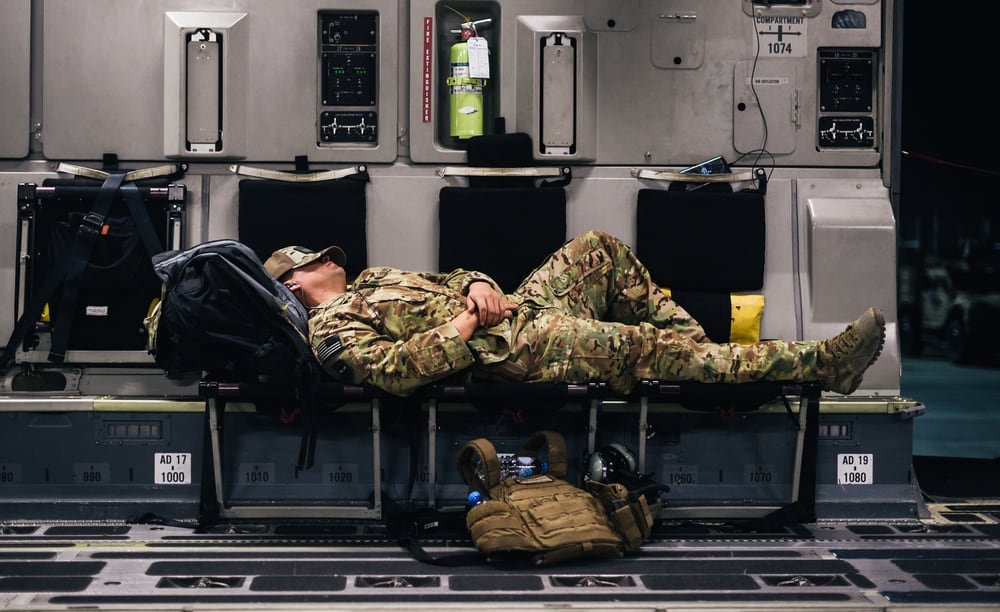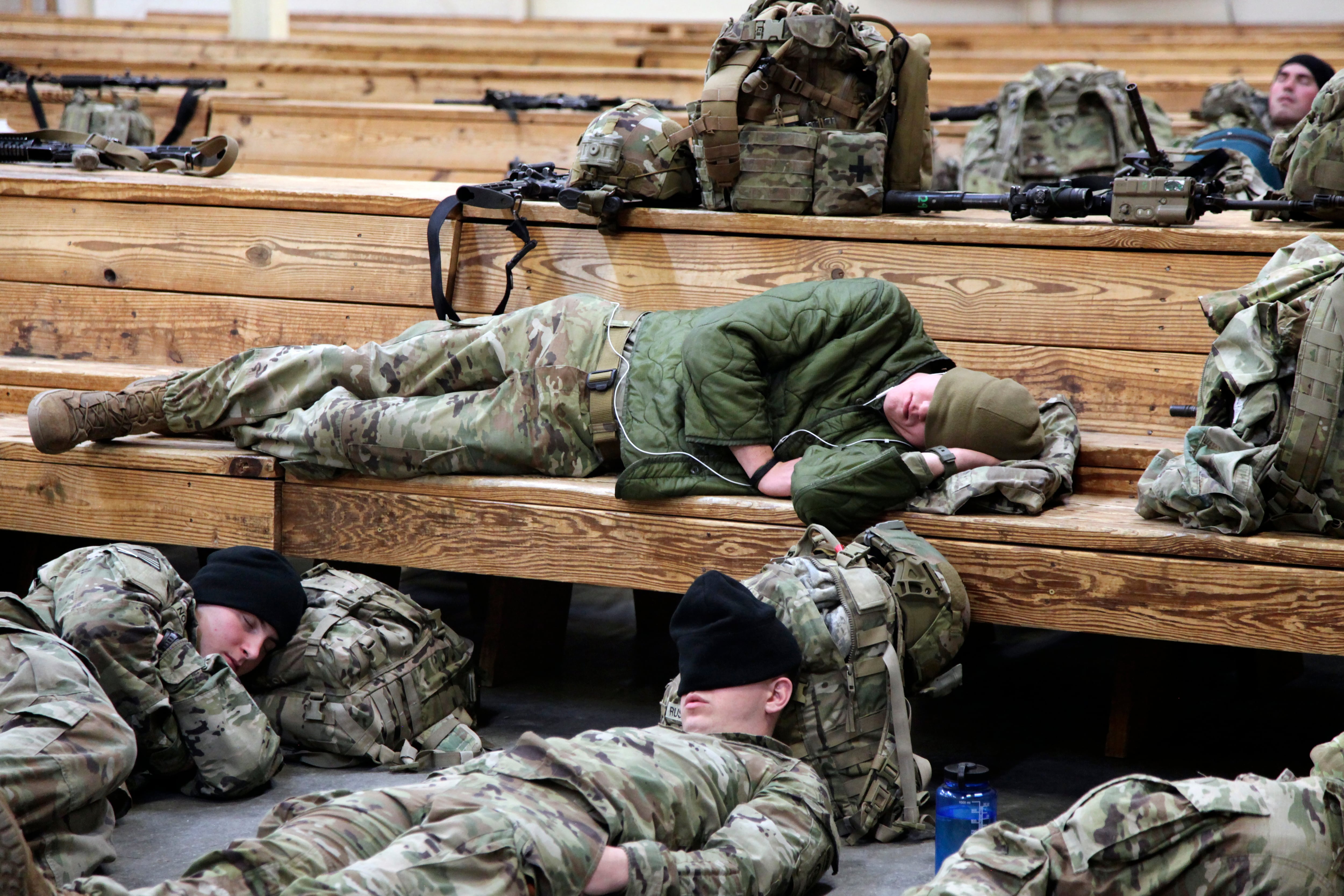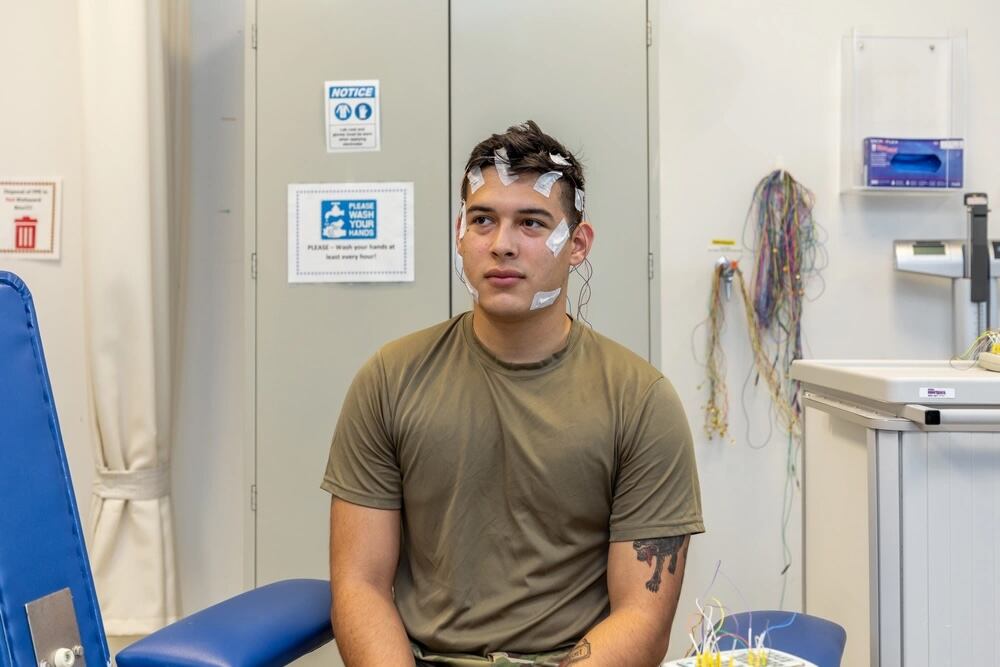Army researchers are exploring ways to boost soldiers’ sleep to increase cognition and performance.
Doctors at the U.S. Army Medical Research and Development Command’s Walter Reed Army Institute of Research are studying the use of low-intensity electrical pulses to stimulate restorative brain waves that occur during sleep, according to a service release.
“Two-thirds of service members do not sleep enough every night, a rate that’s twice as high as the civilian population,” said Dr. Tracy Jill Doty, the chief of the institute’s sleep research center. “There’s a need to have a tool that they could use in the field to help make short sleep opportunities more restorative.”
RELATED

Doty’s team is investigating if there are ways to enhance the effectiveness of a limited two-hour sleep window.
Sleep deprivation is an ongoing issue for the military.
The U.S. Government Accountability Office published a report earlier this year stating that most service members sleep 6 hours or less each day, compared to the Department of Defense’s recommended seven hours or more.
Fatigue was said to have been a factor in the fatal 2017 Fitzgerald and John S. McCain destroyer collisions, according to National Transportation Safety Board accident reports.
When a person sleeps, the brain’s electrical activity is much lower than when they’re awake.
Researchers at the University of Wisconsin proposed twenty years ago that these slower waves of brain activity help restore the brain’s neuron plasticity and ability to function. They hypothesized the more slow waves the brain received, the more alert and better a person was at computing the world around them when they were awake.
Eventually, the hypothesis was proven true.
A 2006 study showed 25 minutes of slow-wave stimulation in the first half hour of sleep increased the odds that a person would remember words they’d learned before going to bed, according to the Army release.
RELATED

Walter Reed Army Institute of Research’s Senior Sleep Researcher Dr. John D. Hughes said these landmark discoveries prompted them to consider whether implementing slow waves into the brain could accelerate and optimize the brain’s recovery process, particularly for people who can only sleep for short periods of time.
Hughes developed a study using transcranial electrical stimulation, or TES, which places sensors on a subject’s head to manually generate the slow waves in a person’s brain, to test the idea. He put the stimulation device on some participating individuals during a two-hour sleep window. All individuals in the study were then deprived of sleep for 46 hours and given attention tests throughout.
The individuals who experienced slow-wave stimulation during sleep performed better on the tests than those who didn’t receive it, according to the Army release.
“We are not the first to use TES in sleep research, but I believe we are the first to have demonstrated that it has a positive effect on sleep restorative properties,” said Hughes in the release.
The institute’s sleep research center is developing more studies to pinpoint the best time to start slow-wave stimulation during sleep, the amount of time the stimulation should be used and the difference in results between slow-wave stimulation for short versus long periods of sleep.
These building blocks will hopefully lead to the invention of sleep stimulation devices that service members can implement in the field, according to Doty and Hughes.
Doty said that she expects a proliferation of commercial products using TES over the next five years.
“We’re standing at the precipice of a neurotechnology revolution,” said Doty.
Riley Ceder is a reporter at Military Times, where he covers breaking news, criminal justice, investigations, and cyber. He previously worked as an investigative practicum student at The Washington Post, where he contributed to the Abused by the Badge investigation.





